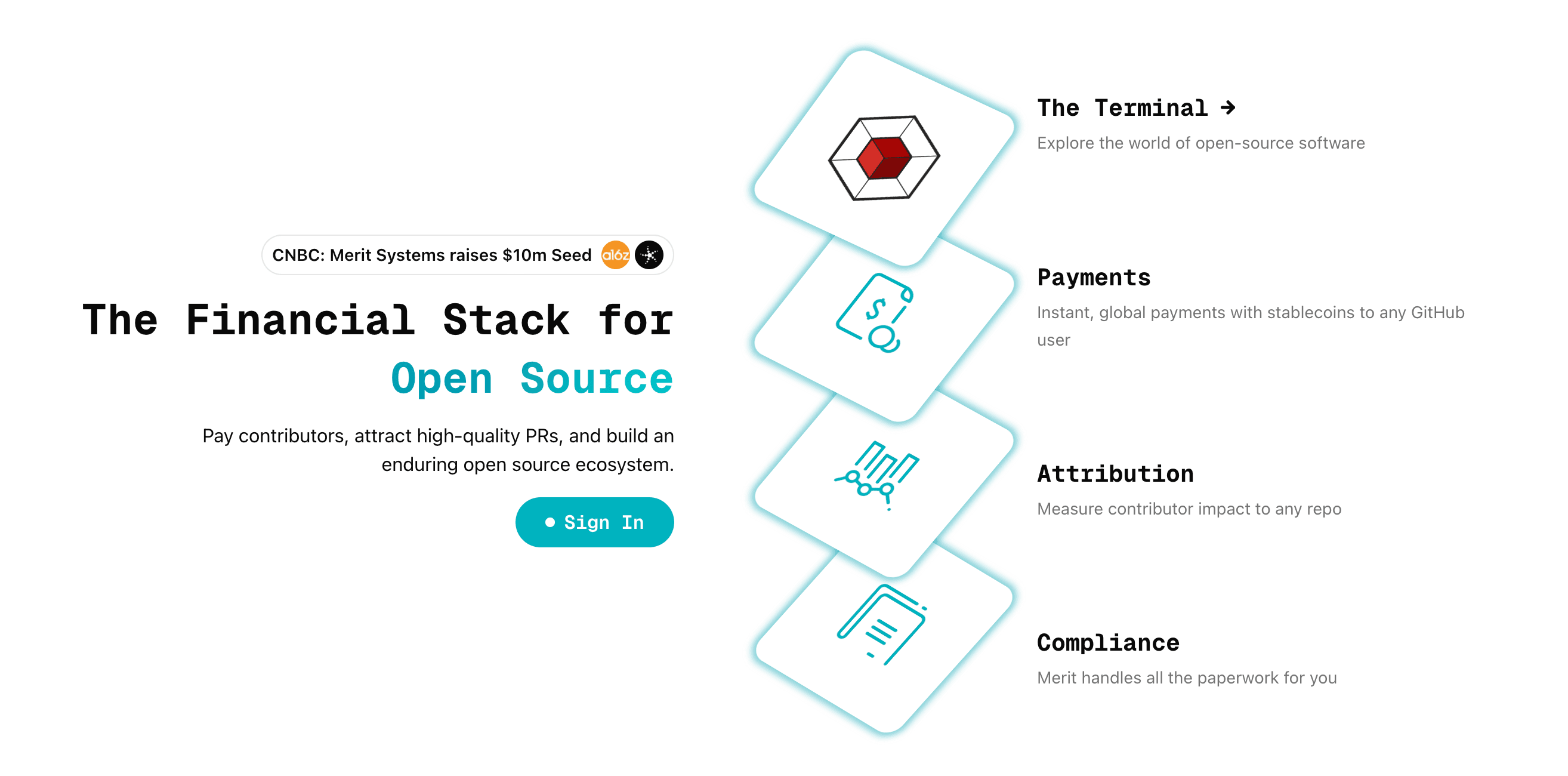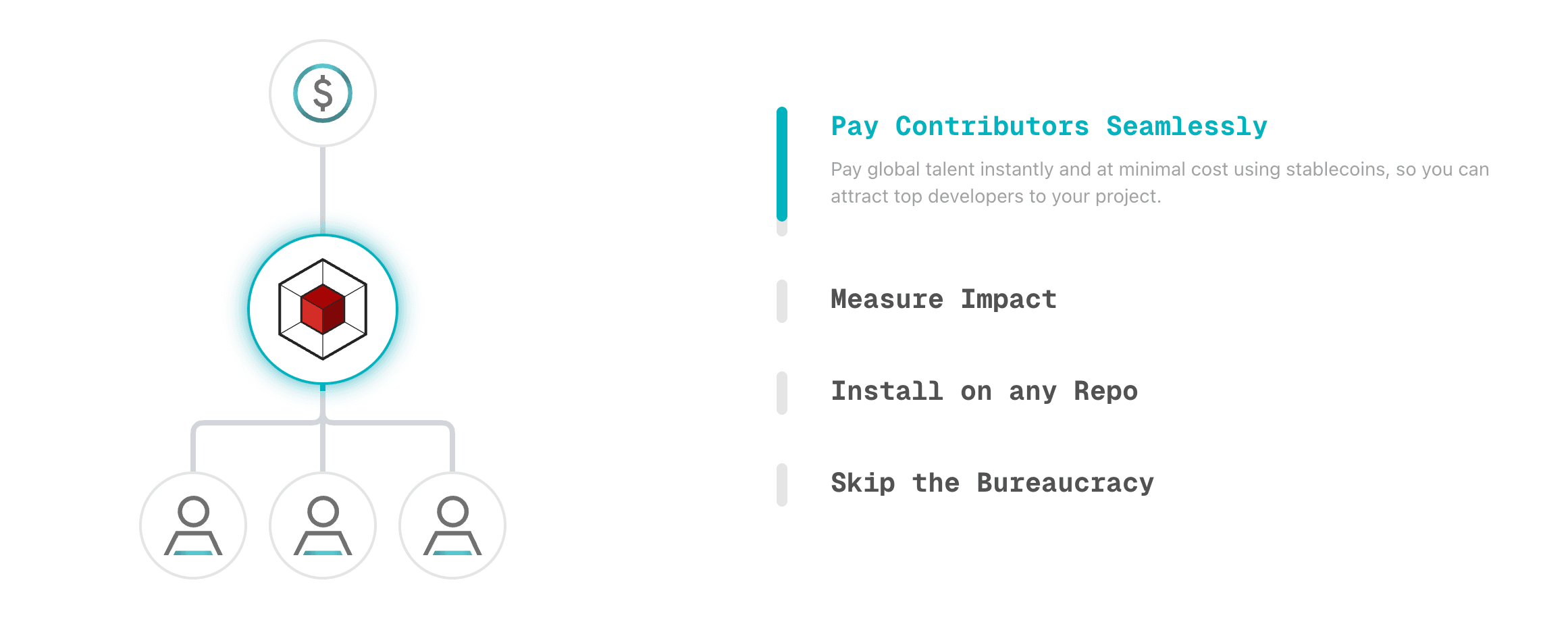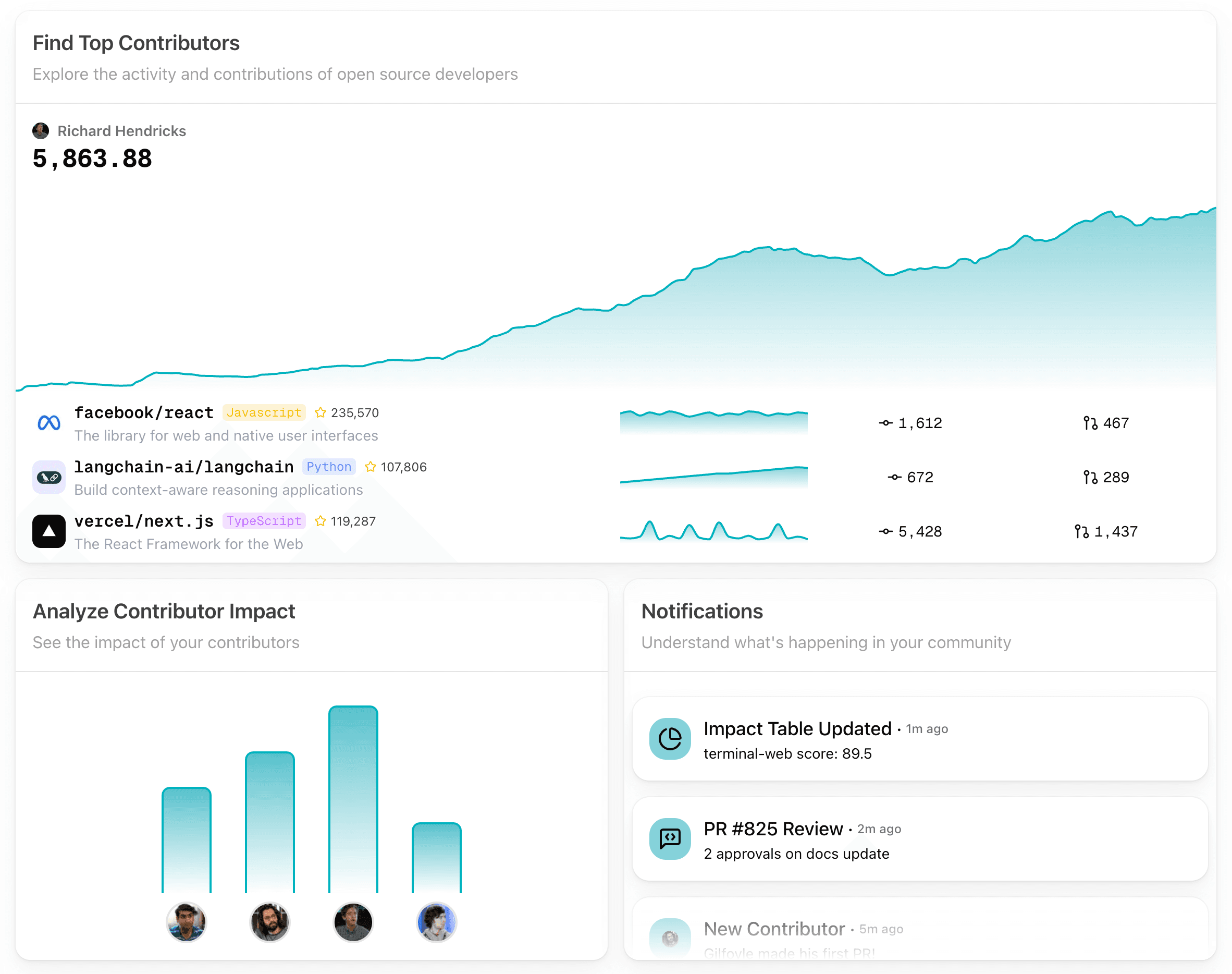Turning open source into businesses with Merit
How Merit uses Privy to power instant, programmable, and global payouts to help open-source teams ship apps and get paid
Debbie Soon
|Sep 10, 2025

Do you know that open-source software underpins 95% of all commercial software today? Despite its critical role, the economics are broken. Contributors often work without pay or recognition, projects struggle to monetize, and setting up a company just to ship code and split revenue adds overhead most developers don’t want.
Today, open source runs on two dominant funding models: venture capital and Big Tech subsidies. Not all digital infrastructure can provide the exponential growth that venture capital demands. In contrast, Big Tech subsidizes free software to further its own strategic objectives, which may commoditize rival products and skew market signals.
Merit believes there’s a better way. A model that directly rewards and organizes human talent, enabling developers to ship and earn together from day one — without having to deal with gatekeepers, legal obstacles, or unnecessary operational costs.
What is Merit?
Merit is the financial stack for open source. It gives internet-native teams the tools to build and monetize software together without needing a company, a finance department, or a corporate sponsor.

Here’s how it works:
Automatic attribution: Every contribution is tracked at the repo level, so anyone can see who built what.
Programmable splits: Contributors automatically receive a portion of the revenue according to their impact.
Instant payouts: Stablecoins make it possible to pay anyone across borders without needing banks or middlemen.
Compliance handled: Merit takes care of the tax and legal overhead so developers can focus on shipping code.
This creates a sustainable marketplace for open-source innovation. Projects have the potential to start as pay-by-contribution companies right away. Contributors receive payment for their labor directly. Additionally, new developers are fully aware of the rewards that await them upon joining.
“We want to make it dead-simple for anyone to ship an app, track who did what, and route revenue based on contribution.” — Sam Ragsdale, Co-founder and CEO of Merit

Why build on stablecoin rails
Merit is powered by stablecoins, which provide properties traditional financial systems can’t:
Programmability: Revenue splits are committed and executed automatically, without requiring unnecessary financial ops.
Global reach: Instant cross-border payouts allow projects to access talent from around the world.
Resilience: By building on open networks, Merit avoids dependence on monopolistic platforms or opaque gatekeepers.
Stablecoin rails make open source genuinely scalable, not only as a method of developing code but also as a means of coordinating human labor.
How Merit uses Privy to power stablecoin payments
Stablecoins are the right primitive for moving money. They are instant, programmable, and global. Combined with self-custody and seamless UX, stablecoins become almost invisible, and are simply money that moves. After all, contributors shouldn’t need to think about keys, chains, or bridges just to get paid.
Merit uses Privy to make this possible. Every contributor gets a self-custodial wallet, provisioned behind a familiar OAuth login. Privy handles the infrastructure, so Merit can focus on building a clean contributor experience: instant payouts, automated revenue splits, and global reach, without having to expose their users to crypto complexity.
With Privy, Merit provides:
Seamless onboarding: Contributors log in with a familiar OAuth flow, no keys or seed phrases required.
Invisible infrastructure: Privy handles wallet creation and key management under the hood, letting Merit’s engineers ship a clean, intuitive contributor experience.
Programmable payouts: Because wallets are embedded, revenue splits can be executed automatically, directly to contributors’ accounts.
The result is a payout system that feels simple on the surface, but is secure, resilient, and truly global underneath.
“Privy preserves the guarantees of self-custody while letting us hide the infrastructure from the interface.” — Sam Ragsdale

What’s next for Merit
Today, Merit launched Echo: a tool that lets developers turn code into a business in just five lines. Any repository can use Echo to turn a free app into a paid one, with contributors receiving all payments and bills. For instance, a straightforward ChatGPT wrapper can quickly transform into a sustainable product, with profits going straight to the developers.
Echo expands upon Terminal, launched in July 2025, which gives every GitHub repo a “bank account” with tax compliance baked in. Terminal and Echo combined create a strong foundation that allows projects to handle and receive funding, as well as profit directly without the need for a middleman.
Merit’s long-term vision is to transform open source into a true economic engine for innovation. Contributors earn in proportion to their impact, projects sustain themselves from day one, and global collaboration is fueled by clearly defined incentives.
Privy is proud to power this new innovation economy, enabling anyone to easily build on stablecoin rails while maintaining a seamless, familiar, and intuitive user experience.

